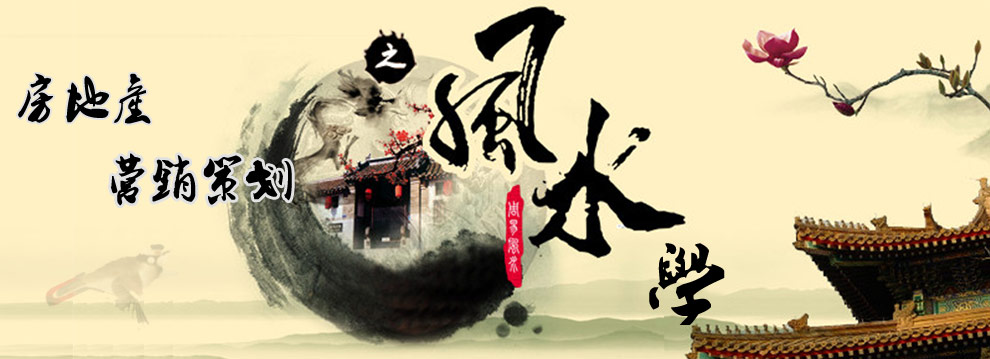生肖小报
10月社会主义革命纪念日小报图片大全
赵一曼的故事 在1935年11月,赵一曼率领的部队被日伪军包围,她要团长带队突围,自己担任掩护,左手手腕中弹负伤。她在村里隐蔽养伤被敌人发现,奋起迎战时左大腿骨被子弹打穿,因流血过多昏迷而被捕。她被押到哈尔滨伪滨江省警务厅受刑后几度昏迷,仍坚贞不屈。她生命垂危时,日寇担心死去得不到口供,把她送进哈尔滨市立第一医院监视治疗。负责看守她的伪满警察董宪勋和医院女护士韩勇义,都为她的英勇所感动,又听她宣传抗日救国的道理,于是决心参加抗联队伍。在二人帮助下,她于1936年6月28日深夜逃出哈尔滨,朝抗日游击区的方向走。 伪骑警队在第三天凌晨追上了她们乘坐的马车,赵一曼再次被捕。敌人反复折磨了她一个月,她只是怒斥敌人:“你们可以让整个村庄变成瓦砾,可以把人剁成烂泥,可是你们消灭不了共产党员的信仰!” 赵一曼负伤被捕解到哈尔滨后,日寇和伪满的警察头目立即对她进行审讯。此时,她伤口不断流出的鲜血湿透了棉衣,依然滔滔不绝地痛斥日寇侵占中国东北的暴行。负责审讯的日本特务恼羞成怒,竟用竹签从她的指甲缝中钉进去,用鞭子狠戳赵一曼的伤口,使她几次昏死过去。日寇将她送到医院,伤势刚好一点,日寇又在病床前审问,赵一曼依然坚不吐实,日寇拳打脚踢,她的伤口再度破裂,又昏迷过去。医护人员甚至包括看守的警察都对她产生了敬佩。 革命烈士名言 陈辉(革命烈士,死在渣滓洞)的名言: “战士的坟墓比奴隶的天堂更明亮。” 革命烈士蒋光慈的诗: 愿我的心血化为狂涌的圣水,将污秽的人间洗得净净地! 愿我的心血化为光明的红灯,将黑暗的大地照得亮亮地! 愿我的鲜艳的心血之花,香刺得人们的心房透透地! 愿我的荡漾的心血之声,飞入了人们的耳鼓深深地! 革命烈士夏明翰:杀了我一个,还有后来人. “砍头不要紧,只要主义真。” 戚继光的名言“封侯非我愿,但愿海波平” 热的心会把冰雪溶消。 ———— 《革命烈士诗抄》 烈士裘怀古英勇就义前的一句名言:“同志们,胜利的时候不要忘记我们。” 为了免除下一代的苦难,我愿意把牢底坐穿!” 革命烈士邓中夏名言:“人生只有一生一死,要生的有意义,死的有价值。” 莫待萧萧两鬓丝—— 朱学勉《有感》《革命烈士诗抄》 革命烈士李大钊同志的名言:“吾愿吾亲爱之青年,生于青春,死于青春。” 先烈精神伴我成长 告别了漫天的飞雪,告别了凛冽的寒风,我们迈步走进春天的校园。当温暖的阳光洒在身上,当鲜艳的五星红旗冉冉升起的时候,我们这些朝气蓬勃的少年儿童,都感到万分的自豪,无比的幸福。然而,这美好的生活来得多么不易啊! 忘不了雪山草地上,每一个脚印写着真诚,每一颗红星闪亮着希望,每一声枪响寄托着革命的信念。二万五千里长征路啊,气壮山河! 忘不了青纱帐里,中华儿女出奇兵,枪头凝聚着民族的仇恨,向着侵略者发出怒火。奔腾的黄河,为他们高奏凯歌! 忘不了少年英雄林森火、王二小,机警地侦察敌情,用自己少年的生命,在共和国的旗帜上留下血染的风采。 丰碑长在,英魂永存。我们这些成长在祖国温暖的怀抱中的少先队员,将庄严宣誓:发扬革命传统,继承英雄业绩,牢记人民期望,立志报效祖国。我们要在实践中学习真知,锻炼意志,培养品德,全面发展,成为继往开来、大有作为的新一代! 让我们在春天里播种理想,在秋天里收获辉煌!! 百年回眸, 悠悠岁月, 旧中国,列强欺凌, 主权沦丧,山河破碎,生灵涂炭。 面对中华民族—— 毕生最大的耻辱与危难, 多少仁人志士 慷慨悲歌,前仆后继, 浴血奋战在......余下全文>>
急!!!求做一份虎年春节的英语小报!
The Origin of Chinese New Year The Chinese New Year is now popularly known as the Spring Festival because it starts from the Begining of Spring (the first of the twenty-four terms in coodination with the changes of Nature). Its origin is too old to be traced. Several explanations are hanging around. All agree, however, that the word Nian, which in modern Chinese solely means "year", was originally the name of a monster beast that started to prey on people the night before the beginning of a new year. One legend goes that the beast Nian had a very big mouth that would swallow a great many people with one bite. People were very scared. One day, an old man came to their rescue, offering to subdue Nian. To Nian he said, "I hear say that you are very capable, but can you swallow the other beasts of prey on earth instead of people who are by no means of your worthy opponents?" So, it did swallow many of the beasts of prey on earth that also harrassed people and their domestic animals from time to time. After that, the old man disappeared riding the beast Nian. He turned out to be an immortal god. Now that Nian is gone and other beasts of prey are also scared into forests, people begin to enjoy their peaceful life. Before the old man left, he had told people to put up red paper decorations on their windows and doors at each year's end to scare away Nian in case it sneaked back again, because red is the color the beast feared the most. From then on, the tradition of observing the conquest of Nian is carried on from generation to generation. The term "Guo Nian", which may mean "Survive the Nian" becomes today "Celebrate the (New) Year" as the word "guo" in Chinese having both the meaning of "pass-over" and "observe". The custom of putting up red paper and firing fire-crackers to scare away Nian should it have a chance to run loose is still around. However, people today have long forgotten why they are doing all this, except that they feel the color and the sound add to the excitement of the celebration. ---------------------------------------------------------------------------------------------------------------------- The Spring Festival is the most important festival for the Chinese people and is when all family members get together, just like Christmas in the West. All people living away from home go back, becoming the busiest time for transportation systems of about half a month from the Spring Festival. Airports, railway stations and long-distance bus stations are crowded with home returnees. Strictly speaking, the Spring Festival starts every year in the early days of the 12th lunar month and will last till the mid 1st lunar month of the next year. Of them, the most important days are Spring Festival Eve and the first three days. The Chinese government now stipulates people have seven days off for the Chinese Lunar New Year. Many customs accompany the Spring Festival. Some are still followed today, but others have weakened. On the 8th day of the 12th lunar month, many families make laba porridge, a delicious kind of porridge made with glutinous rice, millet, seeds of Job's tears, jujube berries, lotus seeds, beans, longan and gingko. The 23rd day of the 12th lunar month is called Preliminary Eve. At this time, people offer sacrifice to the kitchen god. Now however, most families make delicious food to enjoy themselves. After the Preliminary Eve, people begin preparing for the coming New Year. This is called "Seeing the New Year in". Store owners are busy then as everybody goes out to purchase necessities for the New Year. Materials not only include edible oil, rice, flour, chicken, duck, fish and meat, but also fruit, candies and kinds of nuts. What's more, various decorations, new clothes and shoes for the children as well as gifts for the elderly, friends and relatives, are all on the list of purchasing. Before the New Year comes, the people completely clean the indoors and outdoors of their homes as well as their clothes, bedclothes and all their utensils. Then people begin decorating their clean rooms featuring an atmosphere of rejoicing and festivity. All the door panels will be pasted with Spring Festival couplets, highlighting Chinese calligraphy with black characters on red paper. The content varies from house owners' wishes for a bright future to good luck for the New Year. Also, pictures of the god of doors and wealth will be posted on front doors to ward off evil spirits and welcome peace and abundance. The Chinese character "fu" (meaning blessing or happiness) is a must. The character put on paper can be pasted normally or upside down, for in Chinese the "reversed fu" is homophonic with "fu comes", both being pronounced as "fudaole." What's more, two big red lanterns can be raised on both sides of the front door. Red paper-cuttings can be seen on window glass and brightly colored New Year paintings with auspicious meanings may be put on the wall. People attach great importance to Spring Festival Eve. At that time, all family members eat dinner together. The meal is more luxurious than usual. Dishes such as chicken, fish and bean curd cannot be excluded, for in Chinese, their pronunciations, respectively "ji", "yu" and "doufu," mean auspiciousness, abundance and richness. After the dinner, the whole family will sit together, chatting and watching TV. In recent years, the Spring Festival party broadcast on China Central Television Station (CCTV) is essential entertainment for the Chinese both at home and abroad. According to custom, each family will stay up to see the New Year in. Waking up on New Year, everybody dresses up. First they extend greetings to their parents. Then each child will get money as a New Year gift, wrapped up in red paper. People in northern China will eat jiaozi, or dumplings, for breakfast, as they think "jiaozi" in sound means "bidding farewell to the old and ushering in the new". Also, the shape of the dumpling is like gold ingot from ancient China. So people eat them and wish for money and treasure. Southern Chinese eat niangao (New Year cake made of glutinous rice flour) on this occasion, because as a homophone, niangao means "higher and higher, one year after another." The first five days after the Spring Festival are a good time for relatives, friends, and classmates as well as colleagues to exchange greetings, gifts and chat leisurely. Burning fireworks was once the most typical custom on the Spring Festival. People thought the spluttering sound could help drive away evil spirits. However, such an activity was completely or partially forbidden in big cities once the government took security, noise and pollution factors into consideration. As a replacement, some buy tapes with firecracker sounds to listen to, some break little balloons to get the sound too, while others buy firecracker handicrafts to hang in the living room. The lively atmosphere not only fills every household, but permeates to streets and lanes. A series of activities such as lion dancing, dragon lantern dancing, lantern festivals and temple fairs will be held for days. The Spring Festival then comes to an end when the Lantern Festival is finished. China has 56 ethnic groups. Minorities celebrate their Spring Festival almost the same day as the Han people, and they have different customs. 中国新年的起源 农历新年是现在通常被称为春节,因为它开始从最初的弹簧(第24术语的变化与大自然的共用。它的起源是太老了,不能被追踪。有几种解释闲荡。所有的同意,无论如何,这个词,而仅仅意味着现代汉语中“年”,最初的名字的怪物的兽,开始在人们的前一晚,新的一年的开始。 传说有一个叫“年”的怪兽,有一个大嘴巴,会吞下很多人用一口。人们都很害怕。有一天,一位老人来拯救他们,提供制服撵出来。他对年说:“我听到说你很能干,但你可以吞食猎物的地球上其他牲畜代替人绝不是你值得对手吗?”所以,它吞下很多的野兽,地球也harrassed捕食家畜,他们的确是的爱好艺术的确是的人。 之后,这位老人消失骑的怪兽。他原来是不朽的神。如今年过去了,其他野兽的猎物还害怕进入森林,人们开始享受宁静的生活。那位老人离开前,他曾告诉人们把红纸上装饰窗户,每年年末都来吓跑年的情况下溜回,因为红的颜色是兽害怕。 从那时起,传统的观察征服年进行,直到万代。术语“过年”,这也许意味着“存活”成为今天的“庆祝”(新)年度“郭”在中国拥有两"的意思pass-over”和“观察”。习惯的贴红纸,方鞭炮来吓跑年应该有机会还健在。松然而,今天的人们已经遗忘他们为什么要这么做的原因,只是觉得色彩和声音增添了刺激的庆祝活动。 —————————————————————————————————————————————————————————————————————————————————————————————————————————————————————— 春节是中国最重要的节日,人们是所有家庭成员聚在一起的时候,就像西方的圣诞节。所有人离家回去,成为最繁忙的交通系统的时间大约半个月的春节。机场、火车站、长途汽车站挤满家返回者。 严格地说,春天节日开始每年在早期的第12个太阴月,最后将在第一个太阴月到明年。其中最重要的就是除夕和春节前三天。中国政府允许有7天为中国农历新年。 许多关税陪伴过春节。有些一直沿用到今天,有些已经失传了。 在农历12月的第八天,许多家庭会熬腊八粥、美味的粥由糯米、小米、种子,枣,莲子、豆类、龙眼、银杏。 23日的第12个太阴月叫做初步的前夕。就在这个时候,人们对厨房神献祭。然而,大多数家庭现在享受自己制造可口的食物。 在初步的前夕之后,人们开始准备即将到来的新年。这就是所谓的“见到新年进入”。 商店老板正忙着当每个人都出去买必需品的新年。材料不仅包括食用油、大米、面粉、鸡、鸭、鱼、肉,而且坚果的水果,糖果和类型。更重要的是,各种不同的装饰,新衣服和鞋给孩子们的礼物以及老年,朋友和亲戚,都是购买的目录上。 春节到来之前,人们室内和室外的家园,以及他们的衣服、床上用品、所有的器具。 那人开始装饰他们清理房间的气氛为特色的欢呼和盛宴。所有的门都会贴春联,中国书法与黑人在红纸。内容包括房主的祝福,愿你拥有一个光明的前途,祝新年快乐。同样,图片门的神和财富的将会出现在前门辟邪,受欢迎的和平和丰富。 汉字“赋”(意思是福还是幸福)是必须的。人物放在纸上可粘贴或颠倒了,通常在中国的“反富”与“赋”的谐音来,都是发成“fudaole。”更重要的是,两大灯笼都可以提高两边的大门。红色的剪纸窗户玻璃,色彩鲜艳的年画和贴在墙上。 人们重视春节前夕。那时,所有的家庭成员一起吃晚餐。这顿饭是比平常更多的奢侈。的菜肴,比如鸡肉、鱼肉和豆腐不能排除,因为在中国,他们的发音,分别是“吉”、“玉”和“香瓜子”,代表吉兆,丰富和丰富的内涵。晚饭后,全家人会坐在一起聊天,看电视。近年来,春节晚会上播出中国中央电视台(CCTV)是必不可少的娱乐为中国海内外。按照习俗,每个家庭将会熬夜,迎接新年的到来。 在新年醒来时,每个人都盛妆打扮。首先,他们将给他们的父母。然后每个孩子都会得到的钱作为新年礼物,在红色的纸包裹起来。在中国北方人会吃饺子,或者饺子,吃早餐,因为他们认为“饺子”,意思是“招标的声音在新”。同时,形状像金子一样的饺子是中国古代锭从。所以人们吃他们,希望为金钱和财富。 中国南方吃蛋糕做niangao(新年)——一种用糯米包在这种场合,因为作为引导、niangao意味着“高而又高,一年之后,另一个问题。”第5天之后,春节是一段美好的时光,亲戚,朋友、同学以及同事交换问候,礼品和聊天悠闲。 放烟花是最典型的习俗的春节。人们认为爆裂的声音能够驱走妖魔鬼怪。然而,如此的一个活动被完全或部分禁止大城市的政府出于安全,噪音和污染的考虑。作为替代,一些以爆竹声音买音带听,一些休息一点点猛涨到声音太,而另一些人买爆竹手工艺挂在屋子里。 活泼的气氛不只填充每个家庭,而且大街小巷也是如此。一系列的活动,如舞狮、舞龙、灯笼节日和寺庙展览会将于数天。春节然后结束在元宵节是完成。 中国有56个民族。少数几乎庆祝他们的春天节日那天,汉族有不同的习俗。
读书小报可以写什么内容(注 是手抄报)
名人名言:1、敏而好学,不耻下问——孔子 2、业精于勤,荒于嬉;行成于思,毁于随——韩愈 3、学而不思则罔,思而不学则殆——孔子 4、知之者不如好之者,好之者不如乐之者——孔子 5、三人行,必有我师也。择其善者而从之,其不善者而改之——孔子 6、兴于《诗》,立于礼,成于乐——孔子 7、己所不欲,勿施于人——孔子 8、读书破万卷,下笔如有神——杜甫 9、读书有三到,谓心到,眼到,口到——朱熹 10、立身以立学为先,立学以读书为本——欧阳修 11、读万卷书,行万里路——刘彝 12、黑发不知勤学早,白发方悔读书迟——颜真卿 13、书卷多情似故人,晨昏忧乐每相亲——于谦 14、书犹药也,善读之可以医愚——刘向 15、少壮不努力,老大徒伤悲——《汉乐府。长歌行》 16、莫等闲,白了少年头,空悲切——岳飞 17、发奋识遍天下字,立志读尽人间书——苏轼 古人勤奋读书的故事:牛角挂书 唐代李密听说包恺在缑山,前往拜访。他骑着牛,在牛角上挂上一卷《汉书》,边走边读。越国公杨素在路上见到他,拉着马缰绳从后面跟着他,说:“什么书让你勤奋到这种地步?”李密说是《项羽传》。杨素于是与李密谈论,认为他是奇才(见《新唐书·李密传》)。后来用“牛角挂书”比喻勤奋读书。 囊萤映雪 这是由两个故事组成的典故。囊萤:用袋子装萤火虫;映雪:利用雪的反光。利用口袋里萤火虫的光和雪的反光在夜间读书。 车胤勤奋读书,手不释卷,博学多才,但其家境贫寒,用不起灯油,夏天就用白布囊盛几十个萤火虫,用它们发出的光照着读书,夜以继日(见《晋书·车胤传》)。 南朝梁孙康家贫,无钱买灯烛,晚上常映着雪光读书。后人常把“囊萤映雪”两个典故作为勤学的典范。 凿壁借光 汉代匡衡勤奋读书而没有灯烛,邻居有烛光,匡衡就在墙壁上凿一小洞,就着隔壁透进来的光读书(载《西京杂记》)。后人就用“凿壁借光”来形容勤学苦读。 韦编三绝 韦编:古代用竹简写书,用熟牛皮绳把写书的竹简编联起来,就叫“韦编”;三:概数,指多次;绝:断。孔子晚年喜欢研究《周易》,编撰《系辞》《象辞》《说卦》《文言》等解说《周易》的《易传》。由于反复阅读《周易》,以致编联简册的绳子多次断开(见《史记·孔子世家》)。后泛用以形容勤奋读书。 刺股悬梁 苏秦,东周洛阳人。他到齐国,跟鬼谷子学纵横之术,学成后去游说秦王,上书十次,不被所用,带去的资金用完了,非常狼狈地回到家里,哥哥、弟弟、嫂子、妹妹、妻子、侍妾都暗地里讥笑他,说他不务正业,搬弄口舌,倒霉活该。苏秦听后感到惭愧而暗自伤心,于是发愤读书,读得困倦了,就用锥子刺一下大腿,惊醒之后接着再读,最终做了六国的宰相,成为六国的合纵长。后用“刺股”比喻刻苦攻读。 汉朝孙敬读书困倦时,将头发用绳子拴在梁上,一打盹就能惊醒,终于成为当代大儒。后就用“刺股悬梁”比喻刻苦自学。 目不窥园 此典故是说无暇观看园中景色,形容埋头读书、专心治学。董仲舒讲学授课,三年不出屋,无暇看园中景,他的弟子又收了弟子,后来的弟子有的居然没见过他的面。他治学专心到这种程度(见《汉书·董仲舒传》)。后来用以形容埋头读书,足不出户。 读书的好处: 1.可以使我们增长见识,不出门,便可知天下事. 2.可提高我们的阅读能力和写作水平. 3.可以使我们变的有修养. 4.可以使我们找到好工作. 5.可以使我们在竞争激烈的社会立于不败之地. ...... 其实读书有很多好处,就等有心人去慢慢发现. 最大的好处是可以让你有属于自己的本领靠自己生存。 让你的生活过得更充实,学习到不同的东西。感受世界的不同。 不需要有生存的压力,必竞都是有父母的负担。 虽然现在读书的压力很大,但请务必相信你是幸福的。 在我们国家还有很多孩子连最基本的教育都没办法享受的。 所以,你现在不需要总结,随着年龄的成长,你会明白的,还是有时间多学习一下。 新年快乐!新学年成绩更上一层楼。 古代的那些文人墨客,都有一个相同的爱好-------读书.书是人类进步的阶梯.读书是每个人都做过的事情,有许多人爱书如宝,手不释卷,因为一本好书可以影响一个人的一生.那么,读书有哪些好处呢?1读书可以丰富我们的知识量.多读一些好书,能让我们了解许多科学知识. 2读书可以让我们拥有"千里眼".俗话说的好"秀才不出门,便知天下事.""运筹帷幄,决胜千里."多读一些书,能通古今,通四方,很多事都可以未卜先知. 3读书可以让我们励志.读一些有关历史的书籍,可以激起我们的爱国热情. 4读书能提高我们的写作水平. 5读一些有关写作方面的书籍,能使我们改正作文中的一些不足,从而提高了我们的习作水平. 6读书的好处还有一点,就是为我们以后的生活做准备. 7每一个人要想在知识的山峰上,登得越高,眼前展现的景色越壮阔,就要拥有渊博的知识 .8知识是人类通向进步、文明和发展的唯一途径.书是前人劳动与智慧的结晶.它是我们获取知识的9源泉.我们要让自己变得聪明起来,必须多读书,读好书.。 10读书可以让你聪明,打败对手!
五光十色指什么生肖或生肖
你好,是鸡,其特点是:弹性,保守,热心,漂亮,坦诚,幽默,傲慢,自炫,夸耀,盲目崇拜,放荡。
炼丹有术打一生肖 是哪个生肖
兔:月宫里,兔子捣药。
什么生肖呀
烦疴近消散,嘉宾复满堂。 自惭居处崇,未睹斯民康。 理会是非遣,性达形迹忘。 鲜肥属时禁,蔬果幸见尝。 俯饮一杯酒,仰聆金玉章。 神欢体自轻,意欲凌风翔。
土木生肖是什么生肖?
土生肖是羊、狗、龙、牛、木生肖是老虎、兔子、
12生肖的守护生肖
鼠 属守护菩萨(千手观音);牛、虎属守护菩 萨(虚空藏);兔属守护菩萨(文殊); 龙、蛇属守护菩萨(普贤);马属守护菩萨 (大势至);羊、猴属守护佛(大日如 来);鸡属守护佛(不动尊);狗、猪属守 护佛(阿弥陀佛)~十二玉佛守护十二生 肖:
爱看女人的生肖打一生肖
谜底:猪。 色胆包天 sè dǎn bāo tiān 【解释】形容贪恋淫欲胆量很大。 【出处】清·李宝嘉《文明小史》第三十九回:“常言道:色胆包天,这回钮逢之竟要把天来包一包。” 【结构】主谓式 【用法】作谓语、定语;用于口语 【近义词】色胆如天 【例句】施蛰存《石秀之恋》:“色胆包天,敢来奸宿杨雄的妻子?”
六亲不认的生肖是什么生肖
蛇 冷血动物没有亲情



